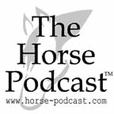
Summary: By Beth Stelzleni of Mars Horsecare US Horses today are living much longer than they did in previous years ndash; in fact it is not unusual to have a horse live into his thirties. As our equine partners live longer lives, it is our responsibility to support them nutritionally in their later years. One question people often have is how to determine if a horse is ldquo;old.rdquo; At what point does a horse move from being ldquo;maturerdquo; to being a ldquo;seniorrdquo;? The answer to this question really depends on the individual horse. While most people consider 20 to be the start of old age in horses, there is no real age when a horse can automatically be considered chronologically old. The most effective way of establishing old age in horses is to watch for certain physical signs. Chronically low body condition, loss of muscle over the topline leading to a sway-backed appearance, graying of the coat, and hollowing out of the grooves above the eyes are all symptoms of old age. There are four primary characteristics of senior horses that can affect their overall nutritional outlook. The first is deteriorating dental health. This is very common in the senior horse and effects their consumption of hay ndash; the most important part of any horsersquo;s diet. Senior horses with bad teeth will simply not be able to chew and process long-stem forage, so alternative fiber sources must be provided in their diets. The second characteristic of senior horses is decreased digestive efficiency. Older horses have nutritional requirements similar to those of a long yearling because they simply cannot metabolize nutrients as easily as they did when they were younger. The third characteristic is a changing metabolism. This means that some older horses may develop problems in maintaining weight and become ldquo;easy keepersrdquo;, while some may develop problems in holding their weight and become ldquo;hard keepers.rdquo; The final characteristic we see in older horses today is arthritis. Arthritis actually has a huge impact on nutrition, as it causes both pain and stress, which can cause an older horse to begin losing weight or go off of feed completely. Also, in group-feeding situations, older, arthritic horses may not be able to fend off other horses to eat their feed. When feeding senior horses, it is a good idea to use a commercial grain mix specially formulated for these older horses. These types of grain mixes are designed specifically for the needs of senior horses, so the protein, and vitamins and minerals in the mix are adequate for a senior horsersquo;s higher needs, and are correctly balanced to fit his nutrient requirements. When shopping for a senior feed, look for a high amount of fiber in the grain to compensate for any loss in ability to process hay. Some senior feeds can even be fed as complete feeds ndash; replacing hay altogether. Also, be sure to look for form in your senior feed. Pelleted feeds are best for those senior horses that have poor teeth, as pellets are easy to process and digest. And finally, be sure to look for a low starch and sugar level. Senior horses can become susceptible to many metabolic disorders due to high starch and sugar levels, including Cushingrsquo;s disease and insulin resistance. By choosing a senior feed that is low in starch and sugar, you can reduce the risk that your senior horse will develop one of these diseases.
